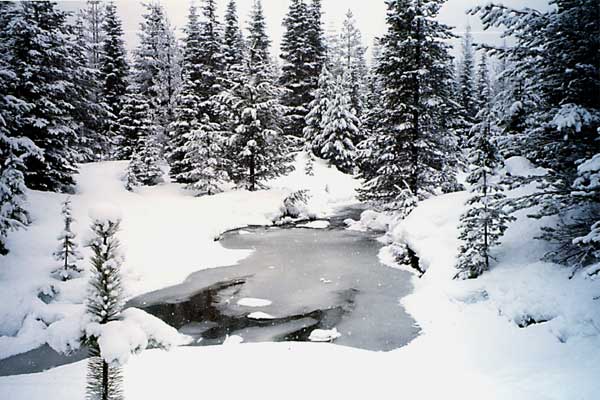Gary Snyder reminds me more of Edward Abbey than any poet. His poems look at nature, and at life, from radically diverse perspectives. In his preface to No Nature he says, "There is no single or set "nature, either as ‘natural world’ or the ‘nature of things.’ The greatest respect we can pay to nature is not to trap it, but to acknowledge that it eludes us and that our own nature is also fluid, open, and conditional."
Snyder studied Zen at a monastery in Kyoto and Tibetan Buddhism and that is reflected in his poems, but you are also likely to find the loggers attitude reflected in them. His poem entitled "Why Log Truck Drivers Rise Earlier than Students of "Zen." though written in the simple language of a tanka or haiku, celebrates the "polished" "hubs" and "shiny" diesel "stack" of the logging truck, and ends with the simple declaration "There" is no other "life" That simple declaration could easily be made by either a truck driver or a Zen student.
"Call of the Wild" probably isn’t a typical Snyder poem, but it does contain several reoccurring themes. Like most of his poems, it is pro-environmental, and it’s not unusual for him to use native Indian themes. His poems often have a nice sense of humor, which certainly dominates this poem.
The Call Of The Wild
The heavy old man in his bed at night
Hears the Coyote singing
in the back meadow.
All the years he ranched and mined and logged.
A Catholic.
A native Californian.
and the Coyotes howl in his
Eightieth year.
He will call the Government
Trapper
Who uses iron leg-traps on Coyotes,
Tomorrow.
My sons will lose this
Music they have just started
To love.
The ex acid-heads from the cities
Converted to Guru or Swami,
Do penance with shiny
Dopey eyes, and quit eating meat.
In the forests of North America,
The land of Coyote and Eagle,
They dream of India, of
forever blissful sexless highs,
And sleep in oil-heated
Geodesic domes, that
Were stuck like warts
In the woods.
And the Coyote singing
is shut away
for they fear
the call
of the wild.
And they sold their virgin cedar trees,
the tallest trees in miles,
To a logger
Who told them,
"Trees are full of bugs."
The Government finally decided
To wage the war all-out. Defeat
is Un-American.
And they took to the air,
Their women beside them
in bouffant hairdos
putting nail-polish on the
gunship cannon-buttons.
And they never came down,
for they found,
the ground
is pro-Communist. And dirty.
And the insects side with the Viet Cong.
So they bomb and they bomb
Day after day, across the planet
blinding sparrows
breaking the ear-drums of owls
splintering trunks of cherries
twining and looping
deer intestines
in the shaken, dusty, rocks.
All these Americans up in special cities in the sky
Dumping poisons and explosives
Across Asia first,
And next North America,
A war against earth.
When it’s done there’ll be
no place
A Coyote could hide.
envoy
I would like to say
Coyote is forever
Inside you.
But it’s not true.
The Republican in the poem seems pretty predictable, almost stereotypical, but the ironic portrayal of the ex acid-heads and their ignorance of the natural world they claim to be concerned about makes us wonder if anyone in America really cares about "the" "wild" Do Americans all want nature to reflect our reality. Do we all want to remake the world in our own image rather than accept it for what it is?
The lines "And the insects side with the Viet Cong./So they bomb and they bomb" recall the American use of defoliants in Viet Nam to deny the North Vietnamese the ability to deliver arms to the Viet Cong. Unfortunately, in the process all the animals that depended on the jungle were destroyed, and the area still "hasn’t" healed. But, hey, it is war.
In a very real sense, America seems to have declared war on the earth, "Dumping poisons and explosives" on the entire environment in order to remake it into our image of what it should be like and to serve our own purposes. It should be "bug free" and wild animals should be like the wild animals in Disney’s movies, or, at the very least, kept out of our sight.
Snyder, like Abbey, seems to feel that the loss of nature will necessarily bring with it the loss of "coyote," that special spirit inside of us that can only come from our exposure to the real "wild."
Unlike Abbey, though, Snyder is able to view America’s attempts to destroy the environment from a distance, to somehow find ironic humor in these actions. Perhaps it is absurdist humor, but laughing is better than crying, particularly when crying won’t change the situation.
Open Directory – Arts: Literature: Authors: S: Snyder, Gary

